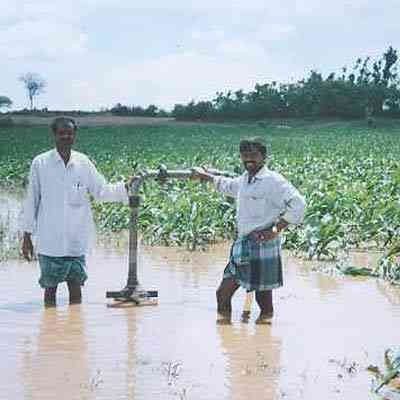Barriers to Trade: Contracting Failures in Irrigation Markets
Investigators: CDEP Affiliate Supreet Kaur and Ryan Bubb of New York University.
This project explores whether enforcement constraints lead to contracting failures in rural economies.
Evidence suggests that in developing countries, credit constraints hinder investment in working capital inputs, which in turn can reduce output and growth. An alternative to formal finance is through the provision of trade credit: firms could provide working capital on credit to other firms or consumers.
In this project, Kaur and Bubb explore a particular setting where we may expect the provision of such credit among firms: irrigation markets in central Uttar Pradesh, India. When growing irrigated products like sugarcane, farmers with small landholdings typically do not own their own borewells, and therefore irrigate by renting those of larger neighboring farmers. Small farmers irrigate substantially less the recommended amount, impacting crop yields. They report the major constraint to irrigation is lack of liquidity to finance irrigation purchases, which typically must be paid for at the time of borewell use. In this setting, trade credit rarely arises — even among neighbors whose plots of land are fixed over time, and who therefore might be expected to solve the enforcement problem through the potential for repeated interactions.
Kaur and Bubb test for the role of enforcement constraints in preventing trade between irrigation buyers and sellers using a field experiment. They created 450 matched water buyer and seller pairs — 2 neighbors who could trade with each other. They guaranteed to subsidize the cost of irrigation if they traded with each other, with payment delivered in the future (after the completion of the irrigation season). For a random half of the pairs, the subsidy payment would be given to the water buyer, while the other half were informed that the water seller would receive the subsidy. In the absence of enforcement constraints, which party receives the payment should not affect the amount of trade (but may affect ex post division of the surplus from trade). In contrast, if enforcement constraints are severe, trade will be higher when the the water seller knows he will receive the money directly.
Using weekly surveys and field checks of soil moisture, they documented the amount of trade and also collected information on other outcomes. They are currently analyzing results of the intervention.
Available working paper: "Barriers to Contracting in Village Economies: A Test for Enforcement Constraints"

